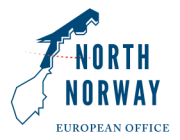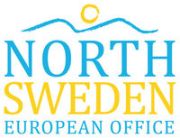
Through a live SWOT analysis, we will identify challenges and best practices for the green and digital transition. We will discuss how these regions, rich in natural resources and innovation, face challenges like negative population growth and skill shortages. We will address the need for societal engagement, transitioning from carbon-intensive industries, and retaining and upskilling talent. The panel, representing various sectors, will discuss these issues to develop practical solutions.
- Local and regional | Outermost | Sustainable | Demographics (depopulation and ageing) | Industry, entrepreneurship and SMEs (enterprise/ startup/ business) | Jobs and Employment
- Code: 08PL24996
- Albert Borschette Conference Centre, AB-3B
Speakers


Goeril Johansen

Rickard Carstedt

Andrew Rae
Moderator

Stefano Barbieri
Practical information
- When
-
Tue 08/10/2024, 11:30 - 13:00 CET
- Where
- Albert Borschette Conference Centre, AB-3B
- Type of partnership
- Partnership
- Format
- Participary Labs/Hackathon
- Theme
-
Smart and sustainable growth for regions
- Language
- English
Partners

North Norway European Office

North Sweden European Office

East and North Finland

Scotland Europa
Reporting
Session summary
The event, opened by Mikael Janson, Director of the North Sweden European Office, and moderated by Stefano Barbieri from OECD, was held in a form of an interactive live SWOT analysis, where the audience was invited to discuss the topic together with our speakers. The speakers, Jussi Rämet, Region Mayor at Council of Oulu Region, Rickard Carstedt, Chair of the Regional Development Board in Region Västerbotten, Gøril Johansen, CEO of ProTromsø, and Andrew Rae, Professor at the University of the Highlands and Islands, were first asked to present their insights on the digital and green future in the sparsely populated areas. After each part of the SWOT analysis, the audience took part in the event by sharing their views and identifying themes for further discussion on the topic through a Mentimeter.
The first step was to identify challenges and threats for the regions. Themes raised by both the panelists and the audience were lack of people, climate change and infrastructure.
The main common factors identified by both the panel and the audience when it comes to the strengths and opportunities of the regions were quality of life, security, access to renewable energy and natural resources.
The key takeaways and the way forward.
With a forward-looking approach, the event also sought to identify future focus areas as well as the required actions for successful green and digital transition in the sparsely populated areas. Several points were raised both by the speakers and the audience. Panelists highlighted the importance of cohesion policy as a central tool to tackle the challenges sparsely populated areas are facing. In addition, a stable regulatory framework is needed to attract green investments. Other important tools for future success recognised by the event participants included cross-border collaboration as well as enhanced East-West connectivity, including digital and transport infrastructure. The Mentimeter results also highlighted the necessity of a bottom-up approach.



